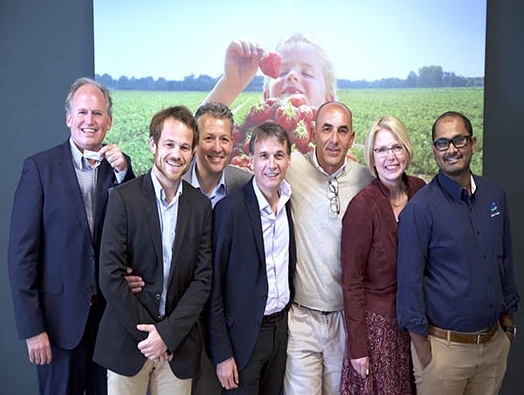
Data sharing pilot demonstrates cool chain partners to focus on transparency to fight food loss
May 21, 2019: Cool Chain Association members last week conducted the first pilot of a new project aimed at improving the supply chain and tackling food loss. The members shared temperature data from perishable consignment of five pallets of berries and avocados, moving from Guadalajara, in Mexico, to Kuwait. The pallets were monitored during their […]

May 21, 2019: Cool Chain Association members last week conducted the first pilot of a new project aimed at improving the supply chain and tackling food loss.
The members shared temperature data from perishable consignment of five pallets of berries and avocados, moving from Guadalajara, in Mexico, to Kuwait.
The pallets were monitored during their journey using loggers powered by secure Near Field Communication (NFC) technology. Temperature movements, including excursions, revealed by the pilot data will be analysed by Philippe Schuler, food waste campaigner with Too Good To Go, a free smartphone app which enables users to buy leftover food at the end of the day from retailers.
Partners for the pilot included Cargolux, Able Freight, AirFrance KLM, SmartCAE and Xtreme Technologies.
Three NFC loggers were placed in an aircraft lower deck pallet during last week’s pilot scheme to measure the temperature at the top, bottom, and in the middle of each consignment.
“This has never been done before, said Edwin Kalischnig, outgoing Secretary General of the CCA and CEO of Xtreme Technologies, which provided the NFC loggers used in the pilot, working with Avery Dennison.
He presented preliminary findings with Edwin Kalischnig at the CCA’s Perishables Conference at Fresh Park Venlo, The Netherlands.
“Forty percent of the food transported around the world [air, ocean, land] needs refrigeration and 20 percent of food loss is caused by a breakdown in the cool chain,” said Schuler.
Schuler points out that accountability is a problem. He said: “If you have the common objective of reducing food waste, you can achieve it, but we are not transparent across the cool chain and accountability is a problem.”
The CCA project is a starting point, and as we get more data, we will be able to be more scientific and look to develop best practices and solutions.”
Schuler and Kalischnig suggested data collected during the program could be analysed in the context of a metric called Degree-Hours, which takes temperature and time into consideration to give an absolute figure against which consignments on a given journey can be measured.
“This opens up a new way of working, where we are not pinpointing the excursion, but looking at the journey as a whole and developing solutions,” said Eric Mauroux, director Verticals & Global head of Perishable at Air France KLM Martinair Cargo, and CCA Treasurer.
“When we talk about data sharing, often people approach it from the angle of transparency.
“In fact, it is also having an understanding that data creates value and it is up to each part of the cool chain to understand the value it brings to them.
“That could mean developing an adapted offer, or complying, or introducing traceability or increasing shelf life, for example.”
Andrea Gruber, head-Special Cargo, International Air Transport Association (IATA) spoke to delegates about IATA’s new industry certification—the Center for Excellence for Perishable Logistics (CEIV Fresh) during the two-day event, which brought together members from across the cool supply chain to network and share best practice.
She said IATA was looking forward to continuing to get feedback, share ideas and work with the CCA as it develops CEIV Fresh.

